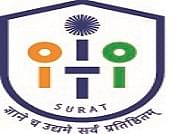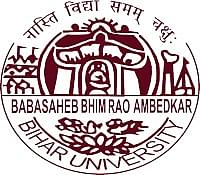Introduction to Ph.D. in Neurobiology
A Ph.D. in Neurobiology from top 5 colleges is an advanced academic
program designed to train students in the intricate workings of the nervous
system. This interdisciplinary field encompasses the study of molecular,
cellular, developmental, and systemic aspects of neural function. The program
aims to equip students with a comprehensive understanding of the biological
mechanisms underlying brain function, behavior, and neurological diseases,
preparing them for careers in research, academia, and biotechnology.
Key Features of the
Program:
1. Interdisciplinary Curriculum:
Combines principles from biology, chemistry, physics, and computational
sciences.
Encourages a holistic understanding of how neural systems operate and
interact.
2. Advanced Research Training:
Emphasizes hands-on laboratory research.
Students engage in cutting-edge research projects, often leading to
significant contributions to the field of neurobiology.
3. Theoretical and Practical Knowledge:
Comprehensive coursework covering neuroanatomy, neurophysiology,
molecular neurobiology, and neurogenetics.
Practical training in techniques such as electrophysiology,
neuroimaging, and computational modeling.
Core Components of
the Program:
1. Core Courses:
Neuroanatomy
and Neurophysiology: Detailed study of the structure and function of
the nervous system, including sensory and motor systems.
Molecular
and Cellular Neurobiology: Examination of the molecular and cellular
mechanisms that underpin neural function, including synaptic transmission and
plasticity.
Developmental
Neurobiology: Study of how the nervous system develops from embryonic stages through
adulthood.
Neurogenetics:
Exploration of genetic influences on neural development and function, including
the genetic basis of neurological disorders.
2. Specialized Electives:
Behavioural
Neuroscience: Investigation of the neural substrates of behavior, including learning,
memory, and emotion.
Neuropharmacology: Study of
how drugs affect the nervous system and behavior, with a focus on therapeutics
for neurological diseases.
Computational
Neuroscience: Application of mathematical and computational tools to understand
neural systems and processes.
Neuroimmunology:
Examination of the interactions between the nervous system and the immune
system.
3. Research Seminars and Workshops:
Participation in seminars featuring leading researchers in neurobiology.
Workshops on advanced research techniques, data analysis, and scientific
communication.
4. Dissertation Research:
Research
Proposal Development: Formulation of a detailed research proposal under
the guidance of faculty advisors.
Dissertation
Research and Writing: Conducting original research that contributes new
knowledge to the field of neurobiology, culminating in a dissertation that is
defended before a panel of experts.
Career
Opportunities:
Graduates of a Ph.D. in Neurobiology are prepared for a variety of
career paths, including:
Academic
Positions: Professors and researchers in universities and research institutions.
Biotechnology
and Pharmaceutical Industry: Roles in research and development, focusing
on neurological drugs and therapies.
Government
and Non-Profit Organizations: Positions in policy-making, funding agencies,
and advocacy groups related to brain health and neurological research.
Clinical
Research: Roles in clinical trials and translational research aimed at
understanding and treating neurological disorders.
What is admission process for Ph. D in Neurobiology
?
The admission process 2024 Ph.D. in Neurobiology at the best 5 university in India typically involves several detailed steps designed to
ensure that candidates are well-prepared and suited for advanced research in
this field. Here’s an overview of the typical process:
1. Meet Eligibility Criteria:
Educational
Background: Candidates usually need a Master’s degree in a related field such as
Biology, Neuroscience, Biochemistry, Psychology, or Medicine. Some programs may
also accept candidates with a strong Bachelor’s degree if they have significant
research experience.
Academic
Performance: A strong academic record, often with a minimum GPA requirement
(typically around 3.0 on a 4.0 scale or equivalent).
2. Research Experience:
Prior research experience in neurobiology or a related field is highly
valued. This can include undergraduate or master’s thesis projects,
internships, or work in research labs.
3. Identify Potential Supervisors:
Prospective students should identify faculty members whose research
aligns with their interests. It’s advisable to contact these potential
supervisors to discuss their research and express interest in their lab.
4. Standardized Tests:
Some institutions may require GRE (Graduate Record Examination) scores,
although this requirement is becoming less common.
International students may need to demonstrate English language
proficiency through tests like TOEFL or IELTS.
5. Prepare Application Materials:
Transcripts: Official
transcripts from all post-secondary institutions attended.
Letters
of Recommendation: Typically, 2-3 letters from academic or
professional references who can attest to the applicant’s research abilities
and potential for doctoral study.
Statement
of Purpose: A detailed essay outlining the candidate’s research interests, career
goals, and reasons for pursuing a Ph.D. in Neurobiology.
Research
Proposal: Some programs may require a preliminary research proposal that
outlines the intended research topic, objectives, and methodology.
Resume
or CV: A comprehensive document detailing academic background, research
experience, publications, and relevant skills.
6. Submit Application:
Applications are usually submitted online through the university’s
graduate admissions portal. Ensure that all required documents are uploaded and
the application fee is paid.
7. Interview Process:
Shortlisted candidates may be invited for an interview, which can be
conducted in-person, over the phone, or via video conferencing. The interview
assesses the applicant’s suitability for the program, research interests, and
fit with potential supervisors.
8. Admission Decision:
After the interview and review of all application materials, the
admissions committee makes its decision. Successful candidates receive an offer
letter, which they need to accept to secure their place in the program.
9. Enrolment :
Upon accepting the offer, candidates must complete the enrolment
process, which may include submitting additional documents, attending
orientation sessions, and registering for courses.
Additional Tips:
Deadlines: Be aware
of application deadlines and ensure all materials are submitted on time.
Funding
and Scholarships: Explore funding options such as research
assistantships, teaching assistantships, and scholarships offered by the
university or external organizations.
Networking: Attend
conferences, workshops, and seminars to network with professionals and gain
insights into the latest research in neurobiology.
By following these steps and preparing thoroughly, candidates can
enhance their chances of securing admission to a Ph.D. program in Neurobiology,
setting the stage for a successful career in this exciting and dynamic field.
What is eligibility criteria for Ph. d in
Neurobiology ?
The eligibility criteria for Ph.D. in Neurobiology typically include a combination of academic
qualifications, research experience, and other specific requirements. Here are
the general eligibility criteria at top Ph. d in Neurobiology colleges
in India :
1. Academic Qualifications:
Master’s
Degree: Most programs require applicants to have a Master’s degree in
Neurobiology, Biology, Neuroscience, Biochemistry, Psychology, or a related
field from a recognized institution.
Bachelor’s
Degree: Some programs may consider applicants with a strong Bachelor’s degree
in a relevant field, particularly if they have significant research experience
or have demonstrated exceptional academic performance.
Minimum
GPA: A minimum grade point average (GPA) is often required, typically around
3.0 on a 4.0 scale, although this can vary by institution.
2. Research Experience:
Relevant
Experience: Prior research experience in neurobiology or related fields is highly
valued. This can include research projects undertaken during undergraduate or
master’s studies, internships, or professional work in research labs.
Publications
and Presentations: Having research publications or having presented
research at conferences can strengthen an application.
3. Standardized Tests:
GRE
Scores: Some institutions may require GRE (Graduate Record Examination) scores,
though this requirement is becoming less common. If required, a strong
performance on the GRE can enhance the application.
English
Proficiency Tests: For international applicants, proof of English
language proficiency is typically required. This can be demonstrated through
standardized tests such as TOEFL (Test of English as a Foreign Language) or
IELTS (International English Language Testing System).
4. Letters of Recommendation:
Applicants are usually required to submit 2-3 letters of recommendation
from academic or professional references who can attest to the applicant’s
academic abilities, research skills, and potential for success in a Ph.D.
program.
5. Statement of Purpose:
A well-written statement of purpose is essential. This document should
outline the applicant’s research interests, academic background, career goals,
and reasons for pursuing a Ph.D. in Neurobiology. It should also highlight how
the applicant’s interests align with the faculty and research strengths of the
program.
6. Research Proposal:
Some programs may require a preliminary research proposal outlining the
intended research topic, objectives, methodology, and potential contributions
to the field of neurobiology.
7. Curriculum Vitae (CV) or Resume:
A detailed CV or resume is typically required, listing the applicant’s
academic background, research experience, publications, presentations, awards,
and any relevant skills.
8. Interview:
Shortlisted candidates may be invited for an interview, which can be
conducted in-person, over the phone, or via video conferencing. The interview
assesses the applicant’s fit for the program, their research interests, and
their potential to contribute to the field.
9. Additional Requirements:
Transcripts: Official
transcripts from all post-secondary institutions attended.
Application Fee: Payment of the application fee as required by the institution.












